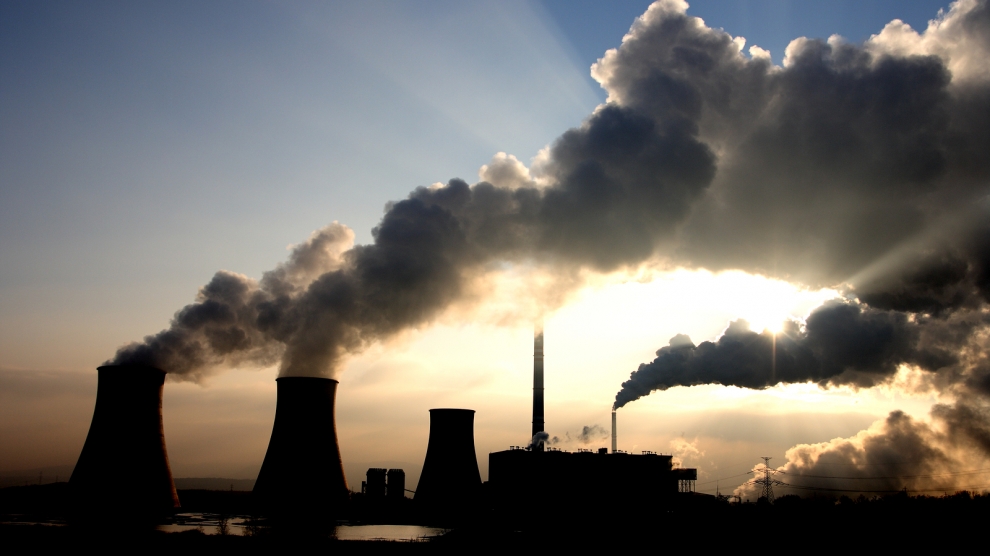The decision last week of Polish state-run utilities Energa and Enea to freeze financing for their joint project to build a new 1GW coal-fired power unit at Ostrołęka, north east of Warsaw, could mark a key change in Poland’s energy policy.
The two companies said that they were suspending financing of the project, which is valued at around six billion zloty (1.41 billion euros), due to difficulties in raising investment capital as well as EU climate policy and new European Investment Bank (EIB) financing policies.
They also said a further analysis of technical and economic parameters is necessary.
“Efforts to acquire an investor for the project have not brought the expected results,” the two utilities said in statement. While construction is expected to continue for the time being, the two companies said that they could not rule out suspending work on the plant, which is scheduled to be completed by the end of 2023.
For years, the Poland’s ruling Law and Justice party (PiS) has defended its coal industry against objections from environmental groups – as well as the EU.
It was PiS which revived the long-dormant Ostrołęka C project in 2016 after winning an election the year before on a pledge to sustain Polish coal mining.
The first sign of a possible shift in policy came last November when the country’s prime minister Mateusz Morawiecki created a new climate ministry and installed as its head not a member of his own pro-coal party but a technocrat, Michał Kurtyka, the former president of the United Nation’s COP24 climate talks.
Part of the reason is that Poland could be in line to receive more than a quarter of the European Union’s Just Transition Mechanism funds, part of the new European Commission president Ursula von der Leyen’s European Green Deal.
The total amount Poland could receive is around 27 billion euros, but in order to do so it needs to commit to de-carbonising its economy. Coal currently accounts for around 80 per cent of the country’s electricity.
In December however, Poland refused to join the rest of the EU’s member states in agreeing to make the bloc carbon neutral by 2050, arguing that it will need more time.
Ostrołęka C – purported to be the last coal-fired power station Poland will build – has long been fiercely opposed by environmentalists who say it would deepen Poland’s reliance on coal and is not economically justifiable. They have welcomed and Enea and Energa’s decision.
“The reality that there is no future for old coal, let alone new coal, in Europe is finally dawning on Poland’s energy sector,” says Zala Primc, a campaigner at the NGO Europe Beyond Coal. “It’s been clear for years that Ostrołęka C is a losing bet financially. Cancelling the project now in favour of a switch to clean, renewable energy will reverse Energa and Enea’s declining fortunes while protecting the health of Polish people, and our climate.”
Other environmentalists have also suggested that the project should now be cancelled.
“While it is positive that Energa and Enea have cancelled financing for Ostrołęka C, banks such as Santander and BNP Paribas should also rule out financial support for Energa and Enea until the coal plant is cancelled once and for all,” says Kuba Gogolewski, senior finance campaigner at Fundacja Rozwój TAK – Odkrywki NIE.
“Poland’s PZU, currently the lead insurer for the project, should use this opportunity to announce an end to its support for new coal project underwriting, and end coal investments overall without exception. Talanx and other insurers should also take note and close the Polish loophole in their coal insurance policies.”
Under EU emissions regulations, Ostrołęka C’s owners would need to pay dozens of euros per ton of carbon emitted into the atmosphere as a byproduct of burning coal. Only heavy government subsidies would make it viable.
“Rising CO2 prices are leaving existing coal power plants with financial trouble. Building new coal with the hope that annual profits would cover capex was highly unrealistic, and this has finally sunk in for Energa and Enea,” says Michal Hetmanski of Instrat, a Warsaw-based energy and economics think tank. “We’ve shown that the companies would have been looking at a loss of 1.5 billion euros over 30 years for Ostrołęka C – almost the entire value of the investment to build the plant in the first place.”

